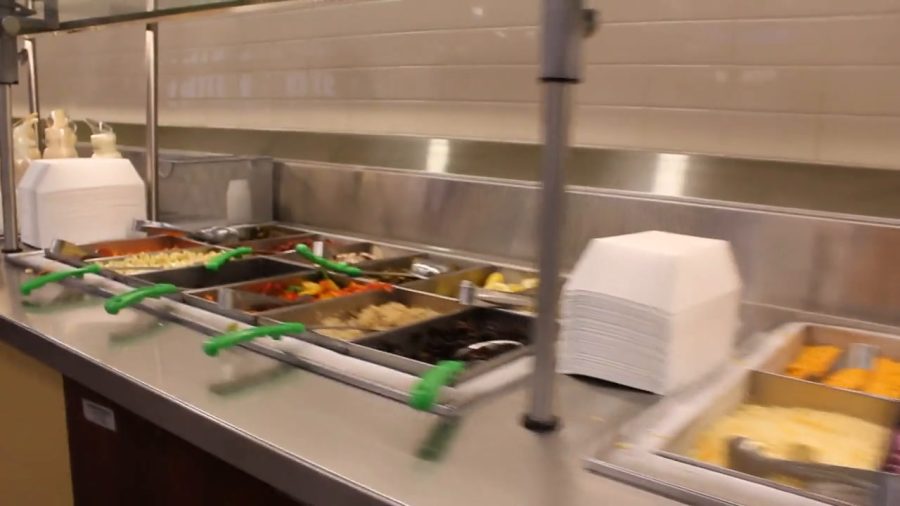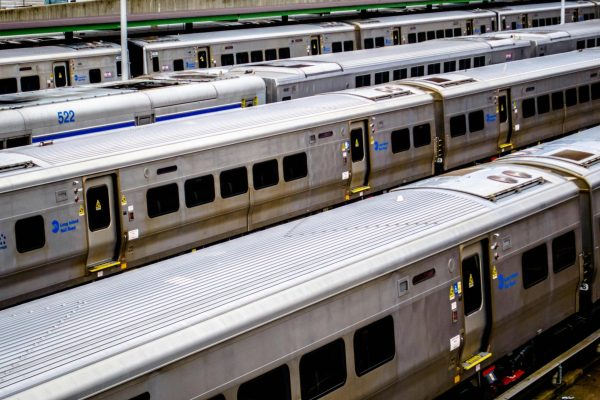University students tackle food insecurity on campus
December 12, 2022
Food prices have risen in the University’s Cafe 101, leaving many students scrambling for a way to come up with extra funds as rising inflation has exacerbated food insecurity on campus.
In response to this increase, Kat Reed, a junior Political Science major, recently spearheaded two petitions to lower the food prices in the cafe. So far, the change.org petition has amassed over 1,000 signatures. Reed and four other University students, Jacquie Keesee, Marley Thomas, Sam Weisz and Becca Samuelson, hosted a meeting to discuss student concerns with the administration on Dec. 2.
During the meeting, multiple issues were addressed, especially regarding price transparency. According to Clifford Mondesir, the Executive Director of Auxiliary Services, before the cost of food is decided for the academic year, a meeting takes place in which the proposed cafe prices are verified and compared to rates around the area to take inflation into account. Despite this, many students have voiced their frustrations with these prices, with some still insisting it is cheaper to shop for food off campus.
This isn’t the first time Chartwells, the school’s food service provider, has come under scrutiny. A 2015 case with the Washington D.C. Public School District resulted in the company issuing a $19.4 million settlement. A whistleblower complaint revealed that the school district was being overcharged for the food due to mismanagement.
Chartwells isn’t the only food provider with controversy under its belt; a New York Times article published in 2012 mentioned a student boycott that occurred at the University due to the cafe’s failure to pass inspection requirements. Most recently, Cafe 101 passed its inspection in February 2022 by only five points–enough to still receive a letter A. While the food quality was mentioned during the meeting with the University administration, its primary focus was to discuss food insecurity among the student body.
When asked about the prevalence of food insecurity during her time as a student, Reed said, “I think food security is always an issue on college campuses, however, it has been exacerbated this year due to inflation and the extremely high prices of food in the cafeteria. More people are suffering from food insecurity this year and other options, such as the food bank, are running low on food.”
Dr. Denise Belen Santiago, the coordinator of the Provisions Food Pantry at the University, confirmed Reed’s assertion regarding the increased use of the food pantry by stating, “We opened a few months prior to COVID-19 being declared a pandemic and then we closed for several months. Lately, however, there’s been a steady increase of guests.”
Dr. Santiago went on to discuss the potential consequences of food insecurity and stated that “education/awareness is key… folks need to know that some people have to decide between a MetroCard or buying meal[s], some don’t know where their next meal is coming from, others risk pilfering to get nourishment.”
Santiago highlighted an unfortunate reality for the estimated 40 percent of college students in the U.S. who are food insecure, Reed being one of them. When asked how food insecurity has directly impacted them, they stated, “Unfortunately, there have been days where all I can eat is snacks from meetings or clubs I go to.”
“The food bank has been a tremendous help, as well as the community fridge, but there are still days when I wonder how I’ll afford to eat even just one meal. I know so many others in the same situation, which is such a sad predicament,” Reed said.
These frustrations have been echoed by many on University gossip accounts on Instagram, with numerous posts expressing outrage about the price of food in relation to the cost of tuition. Student accounts on Instagram like @Iamfreefood, have been purchasing food for students at no cost in an effort to spend dining points that won’t transfer over to the next semester.
Food prices everywhere have risen about 11 percent in the past year. The war in Ukraine, sanctions on Russia and disrupted global supply chains due to the pandemic are still affecting the price of food. Despite this, data shows college students have been struggling with food insecurity for the past 10 years and issues with Cafe 101 aren’t new.














Delaney Munyan • Dec 14, 2022 at 2:49 pm
Inflation? Comparing prices to local places? BS! Kessel is charging $10 for a pint of Ben & Jerry’s that you can get at shoprite for $5! Institution food is supposed to be CHEAPER. Not more expensive. $11 for lo mein noodles with chicken? Are you guys CRAZY? We are starving here. Not to mention the new policies to crack down on “fraud” when it’s obvious what they’re really doing. This is exploitation. I wish Pace would just do swipes.